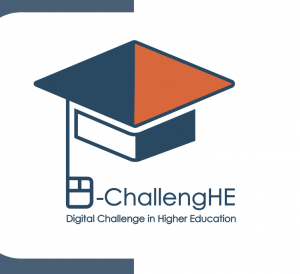Research
Network
The D-ChallengHE HUB is organised into interdisciplinary research groups (RN) that share the same interests, passions and research objectives through a fertile knowledge exchange and virtuous collaboration. The groups organise regular meetings between their members, are open to participation by all and play an essential role in animating the HE research observatory.
Each group has one or more coordinators that animate the discussion and collaboration within the group.
Research networks are focused sufficiently to motivate people and to enable them to work effectively on specific topics. They meet in a very smart workshop to favour active participation, intellectual debate and the exchange of ideas.
Currently, there are seven active groups. It is possible to promote new groups by sending a program of activities and indicating the promoters’ names and a short bio
The existing research groups are as follows:
RN.1 New Role of HEIs in Front of Globalisation and Global Crises. Values, Mission And Goals For The Future Of HEIs
Coordinators:
Stefania Capogna
RN.2 Artificial Intelligence in HEIs
Coordinators:
Simona Velea
Olimpius Istrate
RN.3 The Economic, Social And Ecological Sustainability Of Digital Transformation
Coordinators:
Ligita Simanskiene
Julija Melnikova
Erika Župerkienė
RN.4 Curriculum design and mismatch job supply demand, skills for a changing society
Coordinators:
Žan Dapčevič
Natalija Žunko
Nina Gaube
RN.5 Soft skills for HE students, innovating teaching models, tools for supporting teaching and learning (e-learning, traditional, gamification, AI, augmented reality: methodologies, competencies, etc.)
Coordinators:
Dr Stefanos Armakolas
Fotis Lazarinis
Theodor Panagiotakopoulos
RN.6 Digital and emerging skills (green, STEM, inclusive…)
RN.7 Academic Research: ethical and methodological issues, Computational challenges for humanity
The existing research groups are as follows:

D-Challenge Project Concludes: Discover the Dissemination Report
The D-Challenge Project has reached its conclusion, closing an important chapter of collaboration, research, and innovation. We are pleased to

Join the D-ChallengHE Project: Collaborate on Digital Transition Research in Higher Education
The D-ChallengHE project (https://d-challenghe.unilink.it/) is an initiative aimed at enhancing the experiences, practices, and expertise of the academic community in

D-ChallengHE at ESA Conference 2024 “Tension, Trust and Transformation” in Porto from the 27th to the 30th of August!
We were happy to share D-ChallengHE results on two very interesting sessions related to the research networks “RN10—Sociology of Education”
Elearning standards
The project starts from the observation that, currently, the academic community perceives that it’s still difficult to define elearning standards able to inform academic governance and stakeholders about the quality of e-learning processes.
D-ChallengHE recognises the need to produce and validate a series of new quality assurance standards that consider the qualitative dimension of educational interaction in online learning environments and the need to communicate best practices at European level.
The definition of these standards relies on the intersection among policy, technology, education, society, and the labour market.


